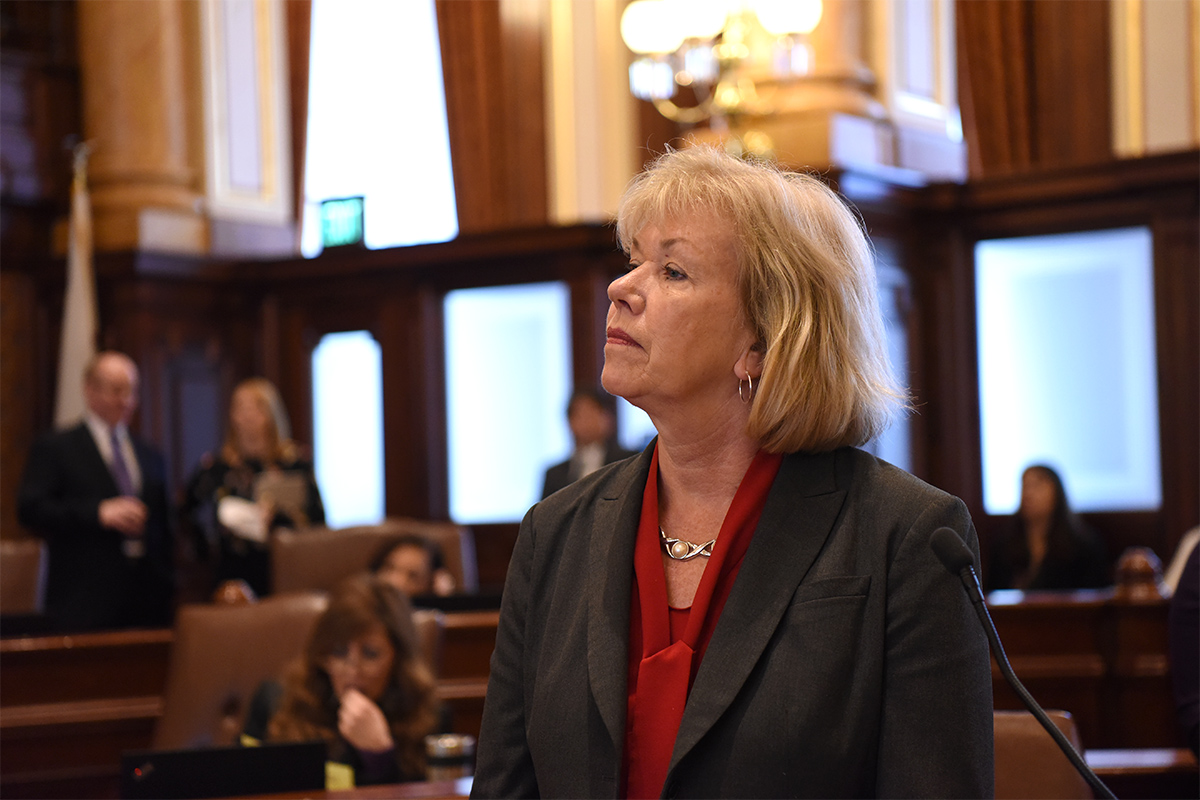- Details
- Category: Uncategorised

“One of my favorite parts of my job as a state senator has always been meeting people in the community and sharing the strides we made in Springfield while hearing their feedback,” said Morrison (D-Lake Forest). “After more than a year of not being able to host face-to-face events, I’m excited to get back out into Lake County and talk with the people who make the district such a great place to live.”
- Details
- Category: Uncategorised
SPRINGFIELD – To help protect the lives of young children with food allergies, State Senator Julie Morrison (D-Lake Forest) championed a measure in the Senate that would create an anaphylactic policy for schools and day cares.
“Children spend most of their day at school, and both they and their parents deserve the peace of mind that comes with knowing that schools are well-equipped to assist when a student is having an allergic reaction,” Morrison said. “Creating a plan and training more employees on what to do if a student is having a reaction will save lives.”
The measure would require an anaphylactic policy for daycares and schools to be created and include training course requirements, food allergy-specific guidelines, a communication plan, and exposure to allergen reduction strategies. It would be based on guidance and recommendation from the American Academy of Pediatrics, and would be shared with parents upon enrollment.
Additionally, under the measure, each daycare should have at least one staff member present at all times who has taken a training course in recognizing anaphylaxis.
“All children should be able to enjoy the same simple joys of school, safe in the knowledge that we’re ready to protect them in an emergency – and that starts with the help of the school community,” Morrison said.
Morrison has continuously been an advocate for helping children with allergies. In 2019, Morrison passed legislation to require insurers to cover medically necessary epinephrine injectors for minors. She is currently working to take that law one step further by removing the age limitation.
House Bill 102 has passed both chambers.
- Details
- Category: Uncategorised
DEERFIELD – Nearly two months after thousands of children under the Department of Children and Family Service’s care were transitioned to a new health care program, State Senator Julie Morrison (D-Lake Forest) led a hearing to discuss how the transition went and what changes still need to be made to the program.

“While I’m pleased thousands of children have received better care, more must be done to make sure every child in the DCFS system receives adequate health care regardless of ZIP code or family background,” Morrison said. “Foster families have already sacrificed so much to take care of our state’s most vulnerable children. They shouldn’t have to consider uprooting their families to find local, quality care.”
The hearing comes after more than 19,000 foster children transitioned to the new Medicaid managed care program – YouthCare – in September, following nearly a year of delays. People who were formerly in the care of the state’s foster program were transitioned to the new health care program in February, but the transition for current foster children was put on pause in an effort for them to receive a smooth transition.
Youth were transitioned into managed care to improve their health care through coordination and better continuity of care. A number of benefits outlined by the state agency include the network being more than three times larger than the former provider, more help for families navigating the health care system and a health care coordinator being assigned to each child.
However, following September’s roll out, concerns were raised after some families were forced to find new providers, leaving them frustrated as they waited for answers and their children were without care. Additionally, a number of families who live in more rural areas have struggled to find in-network providers near their homes, causing them to drive up to three hours to get their children the care they need.
“Today’s hearing was the first step toward tackling issues with YouthCare in an effort to make sure every child gets the care they need and deserve,” Morrison said. “Together, through communication and a willingness to put children’s health first, Illinois can soon have some of the most robust care for children in need.”
- Details
- Category: Uncategorised
DEERFIELD – To make it easier for people to report child abuse and neglect, the Illinois Department of Children and Family Services enhanced its online reporting system. State Senator Julie Morrison (D-Lake Forest) is encouraging the public and mandatory reporters to use the website to report issues at a faster pace.

“Oftentimes, both children and adults find themselves in vulnerable situations where they don’t feel comfortable picking up the phone to make a report or can’t do so immediately,” Morrison said. “Not only does this make the reporting process easier, it expedites the case management process and lessens the number of return calls needed during times of high call volume.”
DCFS last month upgraded its online reporting system, with improved entry fields, clearer instructions and fewer necessary clicks, reducing the time required to make reports.
After the recent upgrade, 434 online reports were made in the last full week of September compared to 173 filed during the same time last year.
When someone makes a report through the upgraded user-friendly site, it is automatically sent to DCFS’s case management system, which the agency says increases internal efficiency.
To use the online reporting system, visit dcfsonlinereporting.dcfs.illinois.gov. Additionally, cases of abuse and neglect can still be reported by phone at 1-800-25-ABUSE.
More Articles …
Page 3 of 13






